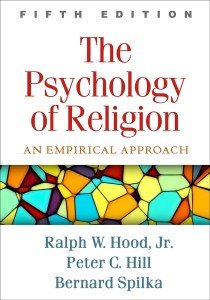A Tapestry of Truth:
A Review of Gandhi's Autobiography
Mohandas Karamchand Gandhi's An Autobiography: The Story of My Experiments with Truth is not simply a biography; it's a spiritual journey meticulously documented, a testament to the power of self-reflection, and a potent political treatise woven into the fabric of a personal narrative. Published in 1927, this isn't just a historical artifact; it's a living document that continues to resonate with readers grappling with issues of justice, self-discovery, and the pursuit of truth in a world often consumed by falsehood. It is essential to note that the story is far from complete in 1927, as India would not gain independence until 1947, and Gandhi remains deeply involved in these two decades after the book is written.
The book's strength lies in its unwavering honesty. Gandhi doesn't shy away from his flaws. He recounts his youthful indiscretions, his struggles with anger, lust, and even his initial reluctance to fully embrace vegetarianism – a pivotal element in his later philosophy. This unflinching self-assessment lays the groundwork for the extraordinary transformation he undergoes, a journey of relentless self-improvement guided by a deeply held spiritual yearning. This honesty, far from diminishing his stature, enhances it. It allows the reader to witness the evolution of a man, not as a flawless saint, but as a human striving for moral perfection.
The narrative structure is chronological, moving from Gandhi's childhood in Porbandar to his early years in South Africa and culminating in his return to India. Each stage of his life is meticulously described, revealing the gradual development of his unique philosophy of Satyagraha (truth-force). The book isn't simply a recitation of events; it's an exploration of the principles that informed his actions. We see the seeds of his later beliefs sown in his early experiences – his upbringing in a relatively privileged but still caste-conscious society, his legal training in England, and the blatant racism he confronted in South Africa.
The South African chapters are particularly compelling. They vividly depict the systematic oppression faced by Indians, and they showcase Gandhi's gradual realization of the power of non-violent resistance. The detailed accounts of his struggles against discriminatory legislation, his experiments with Satyagraha, and his unwavering commitment to peaceful protest are both inspiring and profoundly moving. These chapters offer a masterclass in strategic non-violent resistance, illustrating how a seemingly powerless minority can challenge a powerful oppressor through carefully planned and disciplined action.
However, the autobiography is not without its criticisms. Some argue that Gandhi's portrayal of his role sometimes overshadows the contributions of others in the anti-apartheid struggle. The narrative often centers on his own experiences and insights, potentially downplaying the collective effort that fueled the movement. Furthermore, the book's brevity regarding certain significant periods, such as his years in India before the independence movement gained momentum, can be frustrating to the reader, who craves more detail.
Another essential critique revolves around Gandhi's complex views on caste. While he championed equality, his writings on this topic reveal a more nuanced and, at times, problematic position. He acknowledged the injustices of the caste system, yet didn't completely reject its hierarchical structure. This aspect of his philosophy, though explained within the context of his time, requires careful consideration by modern readers. The autobiography, while presenting his perspective, doesn't fully engage with the critique of this aspect of his beliefs, leaving a sense of incompleteness for readers seeking a thorough examination of this controversial aspect of his life.
Despite these criticisms, An Autobiography: The Story of My Experiments with Truth* remains a landmark work. It is a testament to the transformative power of self-reflection, the enduring strength of non-violent resistance, and the importance of tirelessly pursuing truth. It's not just a biography of a historical figure; it's a deeply personal account that invites readers to embark on their journeys of self-discovery and moral awakening. The book's enduring appeal lies in its timeless relevance: its exploration of fundamental human struggles, the pursuit of justice, and the unwavering belief in the power of truth continue to inspire and challenge readers across generations. Gandhi's legacy, as vividly documented in this compelling autobiography, is a complex tapestry woven with both triumphs and shortcomings, leaving a lasting imprint on the understanding of self-governance, civil resistance, and the pursuit of a more just and peaceful world.






